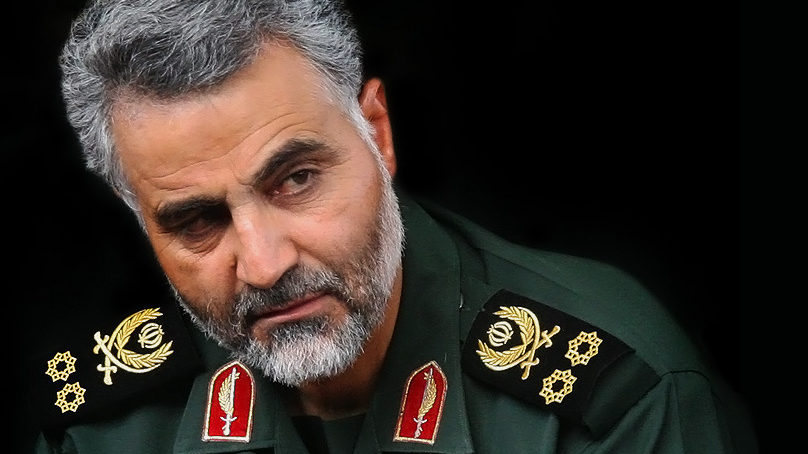Soleimani’s 2nd Death
Asharq Al-Awsat, London, October 14
Well done, Iraq! This was the phrase that came to my mind following the successful conclusion of the largest general elections in Iraq, which took place without a single incident. This congratulations seemed worthy for several reasons. First, the elections – the fifth since Iraq’s liberation in 2003 – reveal that, despite the political setbacks experienced by the people of Iraq, the process of transition to democracy is still very much alive and underway. These elections also reaffirmed the invaluable consensus that had been reached among Iraqis from across the political spectrum on the idea that winning and assuming power is legitimate only through democratic elections. The era of winning or losing power through rebellions, military coups, street riots, foreign invasions or assassinations are over in Iraq for good. Since parliament is the only channel for exercising the powers of the people, the results of the elections will determine who will serve as president and prime minister. Moreover, due to a system of proportional representation, no one sect, party or group can win a monopoly over all state institutions. In a country that has suffered for decades from a brutal single-party system, elections today have the healing power of unity in diversity. Indeed, the fact that elections were held in and of itself is a cause for celebration. To be sure, major players, including some foreign actors and political barons drunk from power, did everything they could to prevent these elections. For months, the official media in the Islamic Republic of Iran opposed holding early elections in Iraq. And when it became clear that the electoral process was still going to take place, Tehran began working to influence its outcome. The supreme leader, Ayatollah Ali Khamenei, provided $200 million from the National Emergency Fund to enable the Quds Force, Tehran’s foreign legion that operates in many countries in the region, to restore its Iraqi proxies to power. The media in Tehran described the Iraqi elections as “Qasem Soleimani’s elections,” in an implicit indication that Iraqi voters will vindicate the death of the general by voting heavily for his local agents. Since Iraqis living abroad could not vote this time, the Quds Force organized daily trips for an unknown number of dual nationals living in Iran, some of whom have lived in Iran for decades, to vote for Quds Force candidates. However, as the results revealed, the performance of Tehran’s electoral agents was worse than anyone could have imagined. It is worth noting here that the militia-dominated bloc led by Hadi Al-Amiri lost 35 of its 50 seats. The biggest winner was from the Shiite side, the splinter Muqtada Al-Sadr bloc, which called for limiting the possession of weapons to the state only. In other words, the people voted to disband the militias controlled by Iran. And, over the past few days, Iranian media outlets have been trying to find some solace in the fact that former Prime Minister Nouri al-Maliki has managed to stay in the game, describing it as a victory for “the path of martyr Soleimani.” Yet Maliki, while always close to the Iranian Revolutionary Guards, was never a Soleimani patron, simply because General Soleimani was intolerant to anyone with a sense of self-esteem. On the other hand, we find that Soleimani’s ideal servant is Hassan Nasrallah, the leader of Hizbullah, who, according to General Soleimani’s only lengthy interview, “would not have drunk water without consulting with us.” In an effort to reduce the impact of the Iraqi elections, the Iranian official media also focused on the issue of “low voter turnout.” Indeed, the last election attracted only 43 percent of registered voters, a point or two lower than the previous one. However, the official media in Tehran quickly abandoned this topic, as it reminded people of a lower voter turnout during the recent Iranian presidential elections. Moreover, the recent Iraqi elections have had other interesting features. This is the first election of its kind to be held in 83 districts, instead of 18 major districts. The new rule allows voters to elect individual candidates, rather than lists provided by party coalitions. The use of biometric cards also helped prevent organized fraud. The fact that a large number of candidates, some 3,500, competed for the 329 seats underscores the continuing appeal of the democratic process to a growing segment of Iraqi citizens. Among those who participated in the elections were the largest number recorded to date of young activists, women and independent individuals. It is clear that a new generation of Iraqi politicians is taking shape. The fact that the young activists, who represented street protesters before the COVID-19 crisis, won more than 8% of the seats may indicate the emergence of new trends in Iraqi politics. The findings also indicate a faster exclusion of the former exiles and dual nationals who until recently dominated the political scene in Baghdad. Last week, Iranian media described the Iraqi elections as “the first test for General Esmail Qaani,” the lackluster bureaucrat who replaced the ostentatious Soleimani. Well, Qaani came out with the loss he deserved. As for Soleimani, who was assassinated in Baghdad, his ghost is now witnessing death for the second time in a row. – Amir Taheri (translated by Asaf Zilberfarb)


